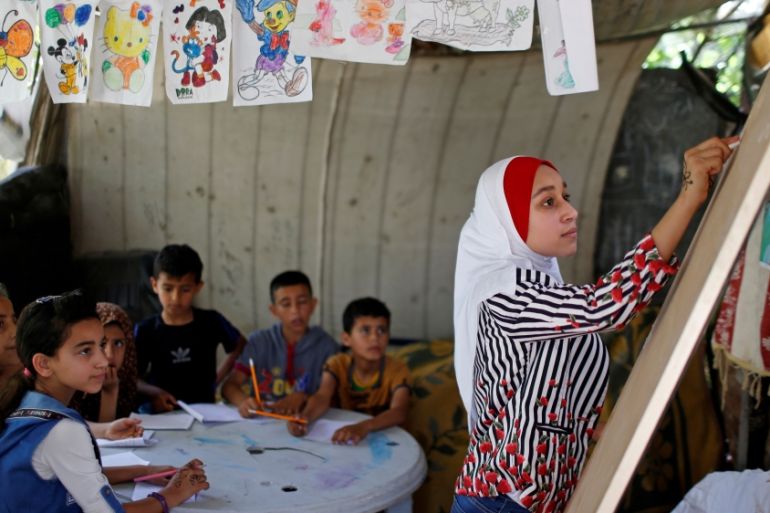Coronavirus fallout triggers human development crisis: UN
New UNDP report says progress in income, education and health will be set back as existing inequalities balloon.

The coronavirus pandemic is causing a steep and unprecedented decline in human development, disrupting progress in income, healthcare and education and crystalising already existing inequalities, the United Nations Development Programme (UNDP) has warned.
A new UNDP report (PDF) – titled COVID-19 and Human Development: Assessing the Crisis, Envisioning the Recovery – stresses that conditions today are equivalent to levels of deprivation last seen in the mid-1980s.
Keep reading
list of 3 itemsProlonged economic recession tops WEF COVID-19 worry list
Coronavirus: UN unveils plan to rescue countries facing collapse
“This shock is different in that it is universal,” Pedro Conceicao, director of the Human Development Report Office at the UNDP said during a press briefing in Geneva on Wednesday. “It is global in nature and it is also almost synchronistic because it is hitting each country and hitting all three dimensions at the same time.”
Warning that “the pandemic was superimposed on unresolved tensions between people and technology, between people and the planet, between the haves and the have-nots”, the report draws from simulations based on an adjusted Human Development Index – modified to reflect the effects of school closures – and incorporates projections of gross national income (GNI) per capita for 2020.
The findings conclude that advances in education, healthcare and income are threatened by the coronavirus pandemic that is triggering the largest contraction in economic activity since the Great Depression.
The official virus death toll currently stands at more than 300,000 but indirectly the coronavirus could lead to an additional 6,000 child deaths every day from preventable causes over the next six months, the report says.
“The crisis was simply imposed in a context of already deeply entrenched inequalities,” Conceicao told Al Jazeera. “When we think of development we tend to think of the basic achievements – we’ve been able to reduce poverty, child mortality.”
Progress in education is taking a massive hit. Out-of-school rates in primary education are expected to drop to the levels of actual rates of the mid-1980s levels.
With almost nine in 10 students out of school and economies experiencing a deep downturn, the decline in the index – reflecting a narrowing in capabilities – would be equivalent to erasing all the progress in human development of the past six years, according to the UNDP simulation.
But if conditions in school access are restored, the simulation shows capabilities related to education could immediately bounce back though the income dimension would take longer to recover.
Addressing pre-existing inequalities with internet and broadband access has become even more important to human development as well. Given more social, educational and economic activities are moving online to contain the spread of COVID-19, getting the estimated 3.7 billion unconnected people across the world consistent, reliable internet access has assumed even greater urgency.
“We knew the digital divide is important. But with many children now out of school and without access to the internet, we risk scarring a generation of children who are unable to learn and were already at a disadvantage,” Heriberto Tapia, Senior Researcher and Policy Analyst at the Human Development report Office at UNDP told Al Jazeera.
In a scenario with more equitable internet access – where each country closes the gap in its human development category – the decline in human development would be more than halved.
The UN emphasises that connecting the unconnected is affordable. In 2018, it was estimated that $100bn would be needed to close the gap in internet access in low- and middle-income countries. That amounts to 1 percent of the unprecedented fiscal programmes announced around the world so far, according to the UNDP.
The UNDP recommends governments respond with a systemic and holistic approach rather than tackle these issues sector-by-sector. It also stresses the importance of collective action – at the community, country and global levels.
“All of these numbers depend on how governments will react. There are ways in which governments can increase the connectivity and resources to enable people to function,” said Tapia.